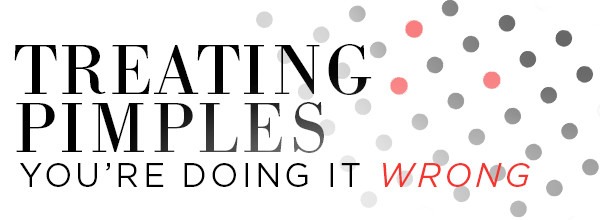 Kailey Strachan
Kailey StrachanWhat better time than during Acne Awareness Month to bust a few blemish myths? As Lily Allen recently showed when Instagraming her pimple-ridden jawline (along with the caption, "How is it fair that I get acne at 30 ? #1stworldproblems"), pimples aren't just for teens. But what about the you-should-never-pop-a-pimple myth? Is that one bunk, too?
To find out, we turned to celebrity aesthetician Renée Rouleau—whose clients include Demi Lovato and Peyton List—to help show us how to deal with nasty whiteheads in a few simple steps.
Wait it out: That's right. The best course of action is to do nothing when you first notice a pimple forming. "The best course of action is to not act the minute you feel it coming on," Rouleau said. "Instead, wait a day or two for the infection to appear on the surface. Waiting will allow you to effectively control the blemish without damaging the skin."
Hold the topical treatment: At this stage in the game, even applying drying gels won't help your cause just yet. "If you apply a drying treatment before the whitehead is on the surface, it will simply dry out the surface of the skin keeping the infection trapped underneath for longer," the skin pro warns.
Gently go in for the kill: Has your pimple come to a head? If so, now's the time to strike—just go easy. "Once the whitehead is truly visible, gently squeeze out the infection with your fingers wrapped in tissue and then apply a spot-drying treatment made with benzoyl peroxide," she instructed. "This will work its way into the pore lining and destroy any bacteria left in the pore.
Drop acid: If a scar starts to form where your zit once lived, treat it with cleansers and treatment products made with salicylic acid or glycolic acid, which can help fade discoloration. When combined with calming ingredients (like green tea and algae extracts), salicylic acid can also help reduce inflammation in skin, Rouleau noted.